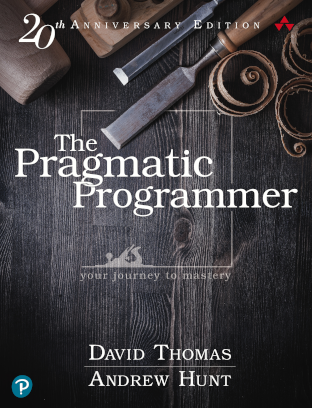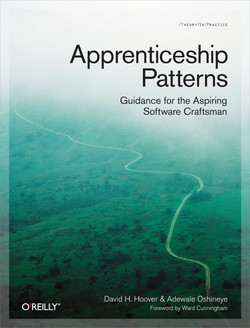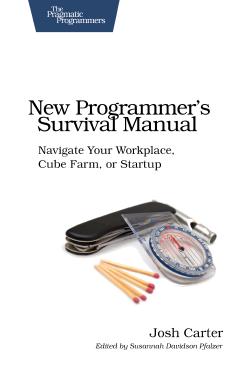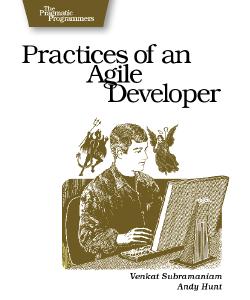Note that this list is not exhaustive, as it is automatically aggregated based on manually assigned categorizations.
If you notice a missing element, or think some of the items are wrongfully categorized, please create a bug/improvement ticket on our github issue tracker.
An overview of all tags used in this publication can be found in our tag list: go to overview
Patterns: software development
Resources: software development
The Pragmatic Programmer, 20th Anniversary Edition: your journey to mastery
( permalink )Thomas, D.; Hunt, A. (2019) The Pragmatic Programmer, 20th Anniversary Edition: your journey to mastery. Addison-Wesley Professional. isbn: 978-0135957059.
Widely regarded as one of the finest books on software development, ‘The Pragmatic Programmer’
by Andy Hunt and Dave Thomas offers invaluable insights into their approach to software development.
Presented in a highly practical, down-to-earth, and conversational style,
this revised classic is a must-read for anyone involved in software development.
The book covers a wide range of topics, from coding techniques and project management to software architecture and best practices.
It provides actionable advice and timeless wisdom that empowers developers to write elegant,
maintainable code and become more effective in their work (as well as maintain their sanity while doing so).
Apprenticeship Patterns
( permalink )Hoover, D.; Oshineye, A. (2009) Apprenticeship Patterns. O'Reilly Media, Inc.. isbn: 978-0596518387.
For individuals transitioning to new teams or roles, ‘Apprenticeship Patterns’ offers invaluable advice. In this book, the authors provide practical guidance on seamlessly and efficiently integrating into a new work environment. The book’s unique structure presents these insights in the form of a pattern list, each offering actionable advice. One particularly memorable pattern, ‘Sweep the Floor,’ underscores the importance of performing the ‘grunt work’ in order to be of immediate value to a team.
New Programmer's Survival Manual: Navigate Your Workplace, Cube Farm, or Startup
( permalink )Carter, J. (2011) New Programmer's Survival Manual: Navigate Your Workplace, Cube Farm, or Startup. The Pragmatic Bookshelf. isbn: 978-1934356814.
In “New Programmer’s Survival Manual,” the author addresses critical questions in the software development field: How can you effectively steer your career in this dynamic industry? And how can you ensure you’re recognized and not overlooked for promotions, especially when you possess substantial technical expertise? Carter offers insights into the often-overlooked non-technical aspects of corporate culture. The book provides valuable guidance on seizing control of your career trajectory, equipping readers with tools to thrive and advance in the software development world.
Practices of an Agile Developer
( permalink )Subramaniam, V.; Hunt, A. (2006) Practices of an Agile Developer. Pragmatic Bookshelf. isbn: 978-0974514086.
In “Practices of an Agile Developer,” authors Dr. Venkat Subramaniam and Mr. Andy Hunt offer readers a unique perspective on Agile development.
Unlike many other books on the subject, this book delves into the complexities of working within a corporate environment. Drawing from their personal experiences,
Subramaniam and Hunt provide a series of candid, and at times, challenging pieces of advice.
Through their insights, readers gain a deeper understanding of the Agile mindset and are inspired to excel within the constraints of their circumstances.
This book not only offers valuable practical advice but also encourages individuals to strive for excellence in the ever-evolving world of software development.



